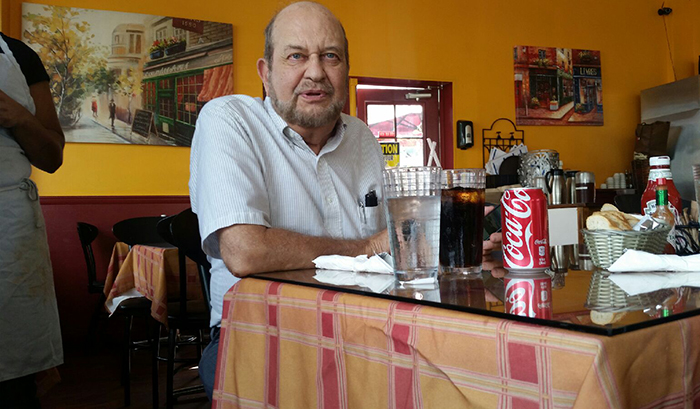Give light and the people will find their own way. – Longtime motto of the former Scripps Howard newspapers.
The essence of that slogan – that voters will act in their own interest if they know enough about an issue or a politician – is at the heart of two measures that may become California laws in less than a year.
One is the so-called NASCAR Initiative. This would require all state legislators to wear the emblems or logos of their top 10 campaign donors every time they attend an official function.
Imagine if that had applied to the ongoing series of primary election debates in both parties this spring: The stage at early contests with as many as a dozen candidates splayed across a series of stages would have looked a lot like the infield at the Indianapolis Speedway or the Auto Club Speedway in Fontana, where dozens of race car drivers in fire-resistant jumpsuits are festooned with logos of car companies, breweries, battery makers and many more.
What logos would some candidates have chosen to represent the industrialist Koch brothers or other large funders of their Super PACs?
Would Democrat Bernard Sanders have been the only candidate with a plain business suit?
Would donor logos have made attractive accessories for the pantsuits usually worn by Hillary Clinton? They certainly could have made voters better informed. Words emerging from her mouth and from others could have been evaluated much more easily in the light of their sponsors.
No polling has been done on it. No one knows whether this somewhat whimsical idea pushed by Rancho Santa Fe businessman John Cox will make the ballot and then pass at the polls.
Pretty as a Picture
If voters do pass it, would it pass constitutional muster? How people dress can be interpreted as a form of speech, which might make this measure a First Amendment violation no matter how popular the idea might become (by late April, it had more than one-fourth the signatures needed to reach the fall ballot).
Good to have backup, and the newest version of the California Disclose Act would provide some of that.
This measure, first proposed at the end of the last decade by then-Assemblywoman Julia Brownley of Ventura County, now a Democratic congresswoman, is less splashy than the NASCAR proposal. It might be more effective, though, because it contains no discernible Constitutional issues.
Known this year as AB 700, the Disclose Act would force all political advertising to clearly and prominently list the top three “true” funders of any ad in large, clear type, one name per line, on a solid black background. This would be the first law in America to finger so-called dark money, which is donated to some political action committees and non-profits in ways specifically aiming to keep them anonymous.
This measure passed the state Assembly on a 60-15 vote. A;; Democrats and 9 Republicans voted in favor. GOP members voting against openness in political financing included the Assembly minority leader Chad Mayes of Yucca Valley.
Said Democratic Assemblyman Jimmy Gomez of Los Angeles: “Voters deserve transparency in our electoral process. (The Assembly) vote moves us forward in the fight to undo unlimited money in our elections.”
Passage of the Disclose Act could provide the first true test in many years of whether the old Scripps Howard motto remains valid. If voter preferences were to change as disclosures are made in TV commercials and newspaper ads, that would be a reliable sign of public reaction to new information.
If both measures pass, California could end up with the greatest amount of openness in American history. That would be an even better test of whether Scripps Howard was correct in using a lighthouse as its logo for generations.
Mr. Elias may be contacted at tdelias@aol.com. His book, “The Burzynski Breakthrough: The Most Promising Cancer Treatment and the Government’s Campaign to Squelch It,” is now available in a soft cover fourth edition. For more Elias columns, visit www.californiafocus.net.








